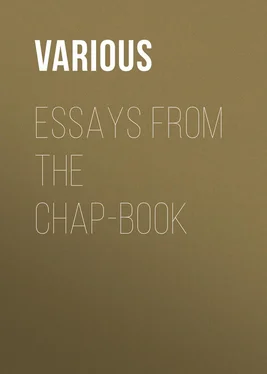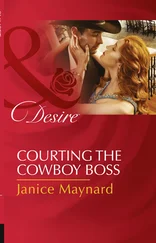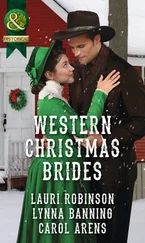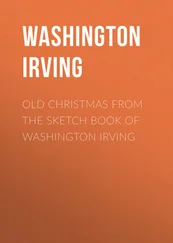Various - Essays from the Chap-Book
Здесь есть возможность читать онлайн «Various - Essays from the Chap-Book» — ознакомительный отрывок электронной книги совершенно бесплатно, а после прочтения отрывка купить полную версию. В некоторых случаях можно слушать аудио, скачать через торрент в формате fb2 и присутствует краткое содержание. Жанр: foreign_prose, sketch, на английском языке. Описание произведения, (предисловие) а так же отзывы посетителей доступны на портале библиотеки ЛибКат.
- Название:Essays from the Chap-Book
- Автор:
- Жанр:
- Год:неизвестен
- ISBN:нет данных
- Рейтинг книги:3 / 5. Голосов: 1
-
Избранное:Добавить в избранное
- Отзывы:
-
Ваша оценка:
- 60
- 1
- 2
- 3
- 4
- 5
Essays from the Chap-Book: краткое содержание, описание и аннотация
Предлагаем к чтению аннотацию, описание, краткое содержание или предисловие (зависит от того, что написал сам автор книги «Essays from the Chap-Book»). Если вы не нашли необходимую информацию о книге — напишите в комментариях, мы постараемся отыскать её.
Essays from the Chap-Book — читать онлайн ознакомительный отрывок
Ниже представлен текст книги, разбитый по страницам. Система сохранения места последней прочитанной страницы, позволяет с удобством читать онлайн бесплатно книгу «Essays from the Chap-Book», без необходимости каждый раз заново искать на чём Вы остановились. Поставьте закладку, и сможете в любой момент перейти на страницу, на которой закончили чтение.
Интервал:
Закладка:
Allmers – Anguish?
Rita – Yes, for change, too, is a sort of birth.
Allmers – It is – or a resurrection. Transition to a higher life.
Rita ( Gazing sadly before her ) – Yes, with the loss of all – all life’s happiness.
Allmers – That loss is just the gain.
Rita – Oh, phrases! Good heavens! we are creatures of earth, after all.
Allmers – But something akin to the sea and the heavens, too, Rita.
Rita – You, perhaps; not I.
Allmers – Oh, yes – you, too; more than you suspect.
The force of the common memories asserts itself anew, and they resolve to remain together and help each other bear the burden of life. Death is no longer a horror, but a quiet fellow-traveller, neither welcomed nor dreaded. Very beautifully and naturally is the transition to the new altruistic endeavor indicated in their wonder why the little companions of Eyolf, who all could swim, made no effort to save him. Never had Eyolf’s father and mother interested themselves in these boys; nor had they made the least effort to ameliorate the hard lot of the poor fishing population, settled about them. Having never sown love, they had never reaped it. Now, in order to fill the aching void of her heart with “something that is a little like love,” Rita invites all the little ragamuffins from the village up into her luxurious house, clothes them in Eyolf’s clothes, gives them Eyolf’s toys to play with, and feeds them and warms them and lavishes upon them the homeless love which was her own child’s due, but of which he was defrauded. In the opening up of this new well-spring of love in her heart, she suddenly perceives the meaning of Eyolf’s death.
Rita – I suppose I must try if I cannot lighten – and ennoble their lot in life.
Allmers – If you can do that – then Eyolf was not born in vain.
Rita – Nor taken away from us in vain, either… ( Softly, with a melancholy smile ) I want to make my peace with the great open eyes, you see.
Allmers ( Struck, fixing his eyes upon her ) – Perhaps I could join you in that? And help you, too, Rita?
And so they begin together a new existence, with new aims and a deeper sense of human responsibility. The contrast between the old life in the senses and the new life in the spirit, is emphasized in a few striking and simple phrases. Their aspiration is now consciously “upwards – towards the peaks, – towards the great silence.”
“Little Eyolf,” though its theme is closely akin to those of Ibsen’s previous plays, is yet written in a new key, and it strikes in its conclusion a note which is quite alien to the author’s earlier work. The declaration of human responsibility – in the sense of accountability, on the part of the refined and prosperous, for the degradation of the poor or miserable – sounds very strange upon his lips. If Carlyle at three score and ten had lifted up his voice and sung “The Song of the Shirt,” or “The Cry of the Children,” we could not have been more surprised. Ibsen’s scorn of the nameless herd – of its meanness, its baseness, its purblind gropings and coarse enjoyments – rings loudly enough through “Peer Gynt,” “The League of Youth,” and “An Enemy of the People.” What means this wonderful softening of his heart toward Nature’s step-children, if not that his own vision has been enlarged, a new warm spring has been opened up in his old age, watering the roots of his being. It is obvious that in returning to his native land and becoming a world-renowned man, he has celebrated his reconciliation with humanity. The world is no longer so dark to him, nor destiny so cruel and meaningless as in the days of his obscurity. Very noble sound these mellow notes in the final scenes of “Little Eyolf,” even though we miss occasionally the cadence of the harsh voice that spoke so many wholesome truths in “Brand” and “Rusmersholm.” Interesting, too, it is to observe that the moral lesson of “Little Eyolf” is the very same as that of a score of Robert Browning’s poems and dramas. Though Browning never emphasizes altruism to the extent that Ibsen does in the present play, the arousing of man, through suffering, from the life of the senses to that of the spirit is succinctly stated, the very soul of the Gospel according to Browning.
Bits of Criticism
By
John Burroughs
THE difference between a precious stone and a common stone is not an essential difference – not a difference of substance, but of arrangement of the particles – the crystallization. In substance the charcoal and the diamond are one, but in form and effect how widely they differ. The pearl contains nothing that is not found in the coarsest oyster-shell.
Two men have the same thoughts; they use about the same words in expressing them; yet with one the product is real literature, with the other it is a platitude.
The difference is all in the presentation; a finer and more compendious process has gone on in the one case than in the other. The elements are better fused and knitted together; they are in some way heightened and intensified. Is not here a clew to what we mean by style? Style transforms common quartz into an Egyptian pebble. We are apt to think of style as something external, that can be put on, something in and of itself. But it is not; it is in the inmost texture of the substance itself. Polish, choice words, faultless rhetoric, are only the accidents of style. Indeed, perfect workmanship is one thing; style, as the great writers have it, is quite another. It may, and often does, go with faulty workmanship. It is the use of words in a fresh and vital way, so as to give us a vivid sense of a new spiritual force and personality. In the best work the style is found and hidden in the matter.
I heard a reader observe, after finishing one of Robert Louis Stevenson’s books, “How well it is written!” I thought it a doubtful compliment. It should have been so well written that the reader would not have been conscious of the writing at all. If we could only get the writing, the craft, out of our stories and essays and poems, and make the reader feel he was face to face with the real thing! The complete identification of the style with the thought; the complete absorption of the man with his matter, so that the reader shall say, “How good, how real, how true!” that is the great success. Seek ye the kingdom of truth first, and all things shall be added. I think we do feel, with regard to some of Stevenson’s books, like “An Inland Voyage,” “Travels with a Donkey,” etc., how well they are written. Certainly one would not have the literary skill any less, but would have one’s attention kept from it by the richness of the matter. Hence I think a British critic hits the mark when he says Stevenson lacks homeliness.
Dr. Holmes wrote fine and eloquent poems, yet I think one does not feel that he is essentially a poet. His work has not the inevitableness of nature; it is a skilful literary feat; we admire it, but seldom return to it. His poetry is a stream in an artificial channel; his natural channel is his prose; here we get his freest and most spontaneous activity.
One fault that I find with our younger and more promising school of novelists is that their aim is too literary; we feel that they are striving mainly for artistic effects. Do we feel this at all in Scott, Dickens, Hawthorne, or Tolstoi? These men are not thinking about art but about life; how to reproduce life. In essayists like Pater, Wilde, Lang, the same thing occurs; we are constantly aware of the literary artist; they are not in love with life, reality, so much as they are with words, style, literary effects. Their seriousness is mainly an artistic seriousness. It is not so much that they have something to say, as that they are filled with a desire to say something. Nearly all our magazine poets seem filled with the same desire; what labor, what art and technique; but what a dearth of feeling and spontaneity! I read a few lines or stanzas and then stop. I see it is only deft handicraft, and that the heart and soul are not in it. One day my boy killed what an old hunter told him was a mock duck. It looked like a duck, it acted like a duck, it quacked like a duck, but when it came upon the table – it mocked us. These mock poems of the magazines remind me of it.
Читать дальшеИнтервал:
Закладка:
Похожие книги на «Essays from the Chap-Book»
Представляем Вашему вниманию похожие книги на «Essays from the Chap-Book» списком для выбора. Мы отобрали схожую по названию и смыслу литературу в надежде предоставить читателям больше вариантов отыскать новые, интересные, ещё непрочитанные произведения.
Обсуждение, отзывы о книге «Essays from the Chap-Book» и просто собственные мнения читателей. Оставьте ваши комментарии, напишите, что Вы думаете о произведении, его смысле или главных героях. Укажите что конкретно понравилось, а что нет, и почему Вы так считаете.












